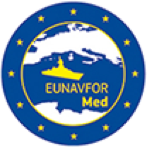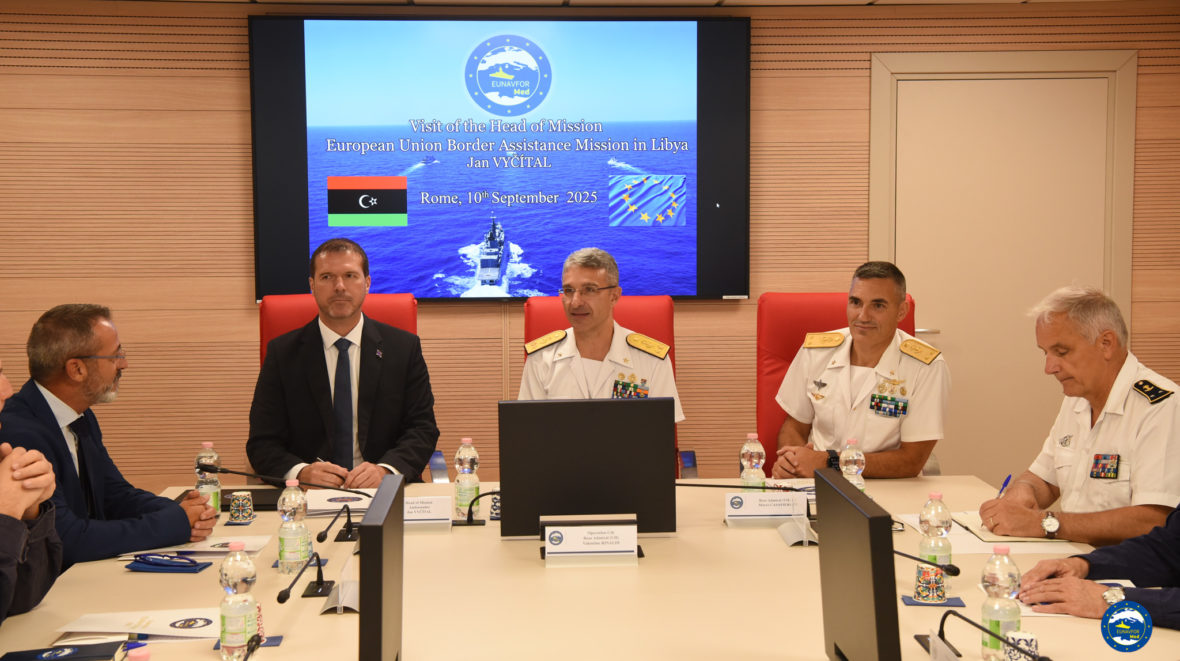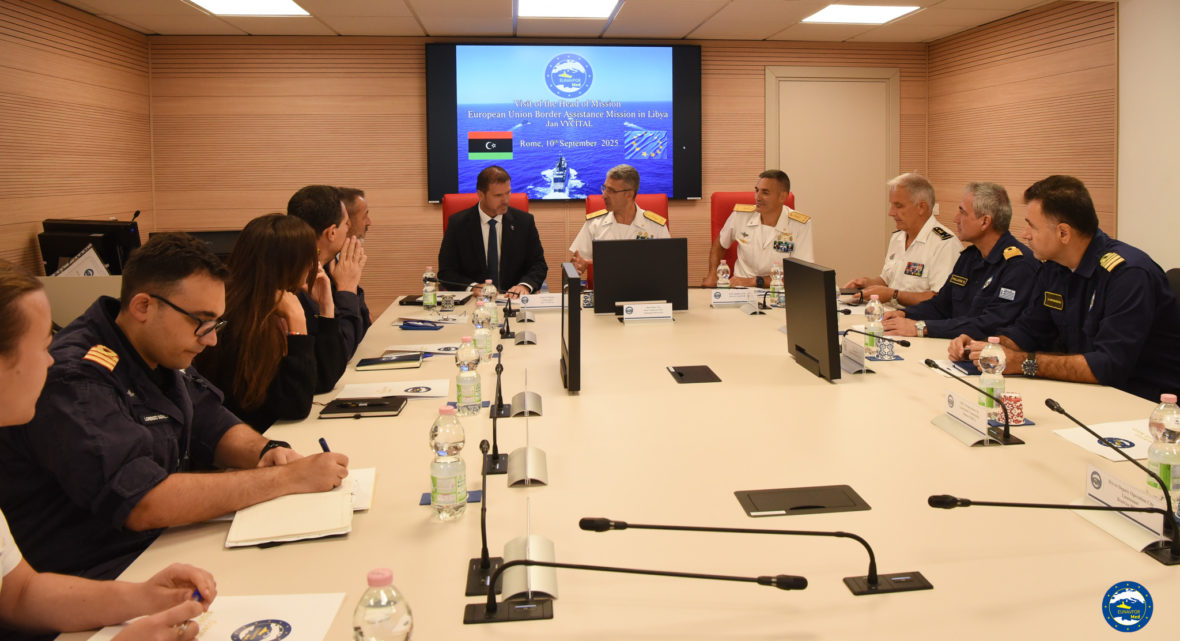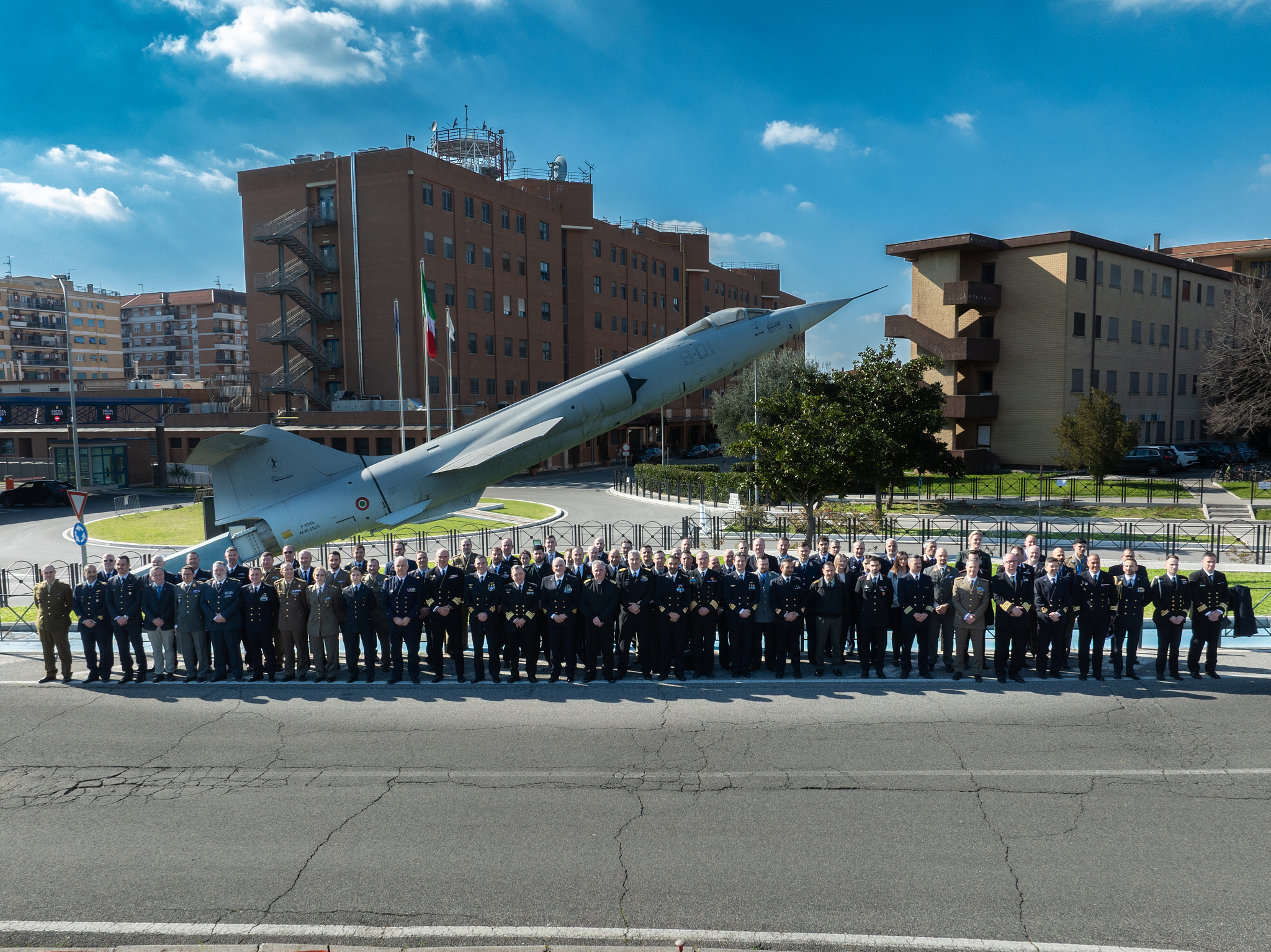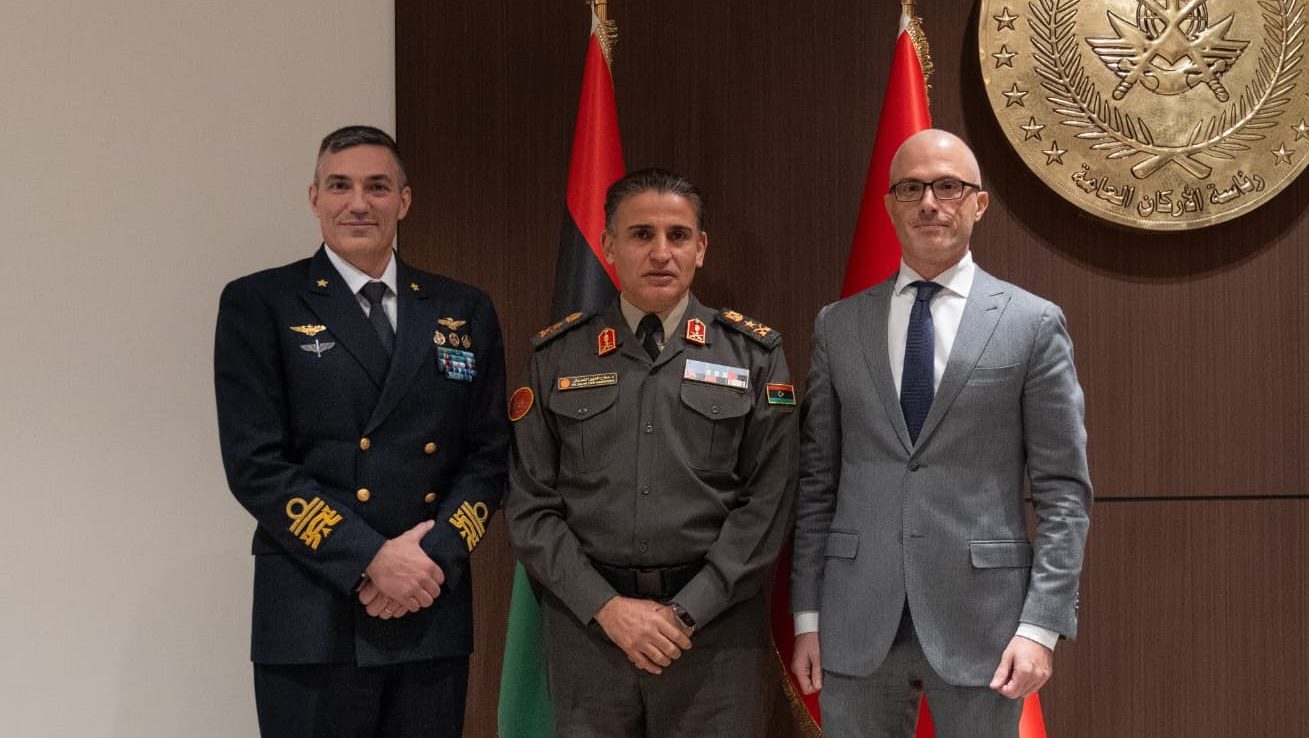VISIT OF AMBASSADOR JAN VYČÍTAL, HEAD OF THE EUROPEAN UNION BORDER ASSISTANCE MISSION IN LIBYA
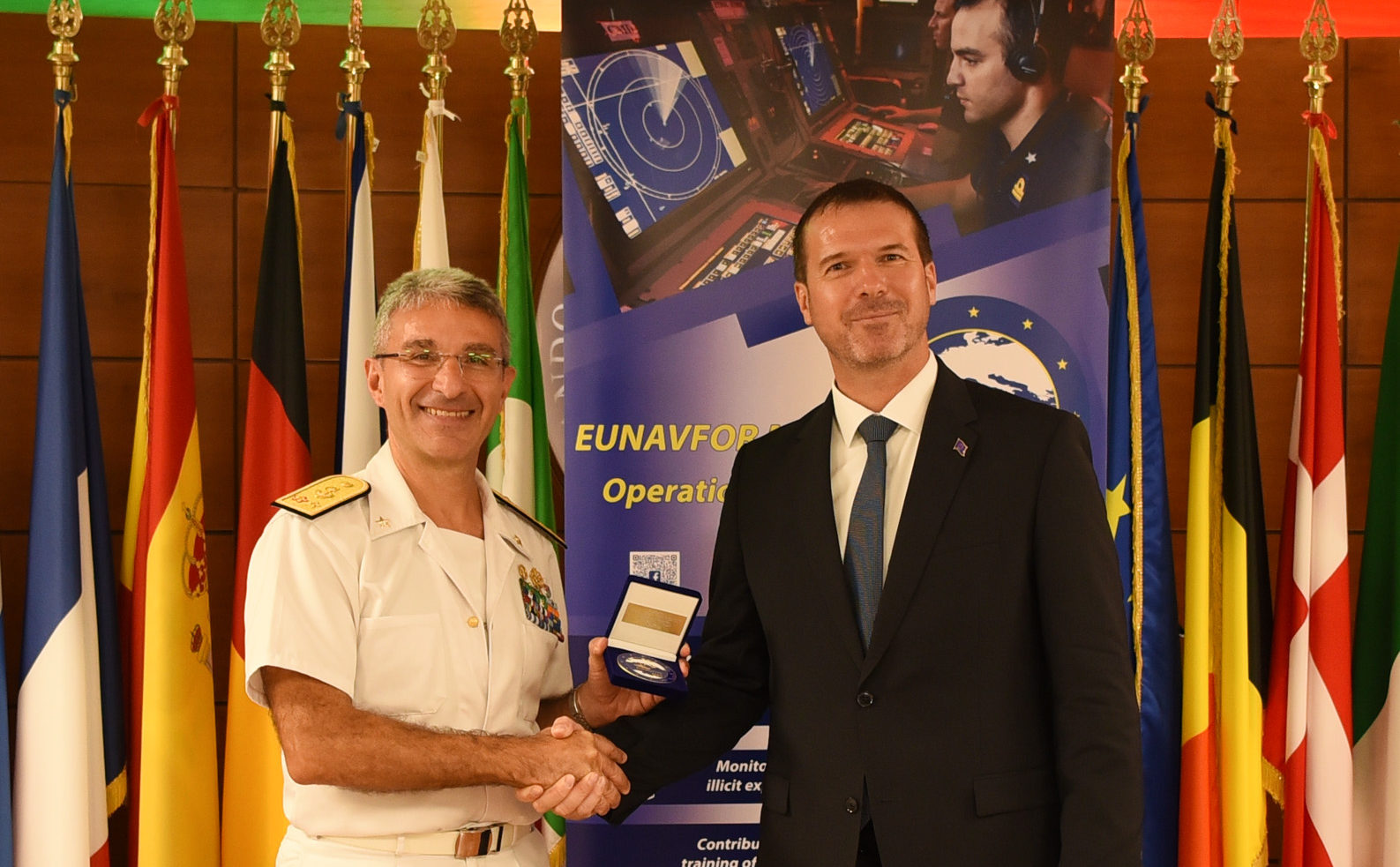
On 10 September, Rear Admiral Valentino RINALDI, Operation Commander of EUNAVFOR MED IRINI, welcomed Jan VYČÍTAL, Head of the European Union Border Assistance Mission in Libya (EUBAM Libya), to the Operational Headquarters in Rome.
EUBAM Libya was established in 2013, based on the invitation of Libya to support the Libyan authorities to develop capacity for enhancing the security of land, sea and air borders. It is part of the EU’s comprehensive approach to support the transition to a democratic, stable and prosperous Libya. On 26 June 2025, the Council of the European Union adopted a decision to extend its mandate for another two years, from 1 July 2025 until 30 June 2027.
The visit reflected the EU’s integrated approach to Libya and the wider Central Mediterranean, reinforcing cooperation between EU missions and operations to enhance security, stability, and support for the political process in the region.
During the exchange, Rear Admiral RINALDI delivered a comprehensive briefing on the status of Operation IRINI, outlining political and operational developments as well as future perspectives. Ambassador VYČÍTAL also provided an update on the latest developments concerning EUBAM Libya, underlining the value of inter-operational dialogue and collaboration.
Rear Admiral RINALDI highlighted that the European Council has extended Operation IRINI’s mandate until March 2027, with the addition of a new task: contributing to Maritime Situational Awareness (MSA) in the Central Mediterranean. This role enhances the EU’s ability to safeguard maritime security and critical underwater infrastructure, protecting vital EU’s interests.
He reaffirmed that Operation IRINI remains focused the enforcement of the UN arms embargo on Libya, stressing the importance of renewing UNSCR 2292, which underpins the maritime inspection regime. In addition, Operation IRINI monitors and reports on illicit oil exports from Libya, works on the disruption of human smuggling and trafficking networks, and supports Libyan authorities through capacity building and training activities.
The discussions reaffirmed the EU’s collective commitment to cooperate closely with Libyan institutions, to uphold international law, and to strengthen security in a geopolitically critical region. Operation IRINI and EUBAM Libya stand as a tangible demonstration of the EU’s determination to combine diplomacy, security, and capacity-building efforts in support of Libya.
